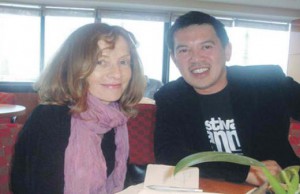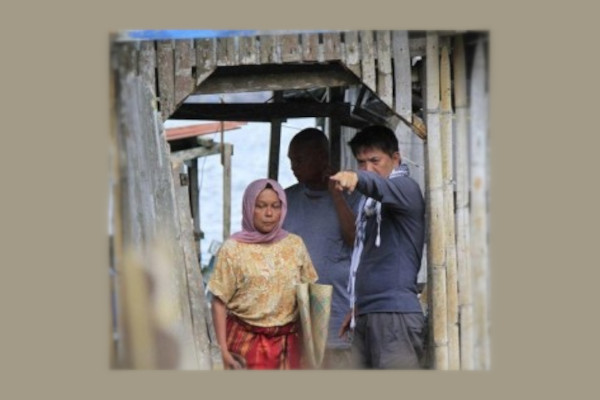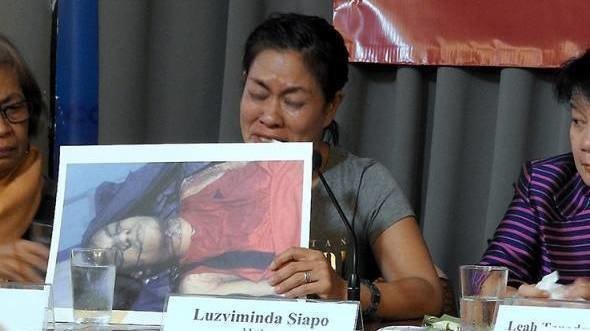By PABLO A. TARIMAN
Venice film fest photos courtesy of Rene Orobia Durian
Photo of Jose Mossesgeld Santiago from the website of Rico Mossessgeld
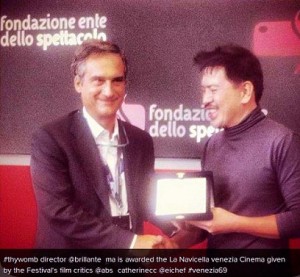 IT must have been a case of déjà vu when Filipino filmmaker Brillante Mendoza and Nora Aunor (along with Lovi Poe and Mercedes Cabral) received a five-minute standing ovation after the screening of “Thy Womb” in the 69th Venice Film Festival.
IT must have been a case of déjà vu when Filipino filmmaker Brillante Mendoza and Nora Aunor (along with Lovi Poe and Mercedes Cabral) received a five-minute standing ovation after the screening of “Thy Womb” in the 69th Venice Film Festival.
The trailer of “Thy Womb” nearly stole the thunder from “Captive” during the latter’s Manila premiere last Sept. 3.
With its superb cinematography, “Thy Womb” captured the rarely seen idyllic life of Tawi-Tawi.
“I did this picture (Thy Womb) because I want to show to the outside world that there is a slice of paradise in the Philippines’s southern frontiers,” Mendoza told media men during the pre-screening presscon.
The Filipino filmmaker earlier made it to Venice for his film “Lola.”
But this year was different because right after the initial screening of “Thy Womb” where the cast got a rousing standing ovation, Filipino actress Nora Aunor won the the Bisato d’ Oro Award for best actress from the jury of independent film critics outside the festival. She was the first Filipina to win an acting citation from Venetian film critics.
The Filipino film director also got the “La Navicella Venezia Cinema’ award for best film for “Thy Womb,” a collateral prize from Venezia69 given by Rivisita del Cinematografo, a group composed of Italian cinema critics. The Filipino entry was chosen as the Best Film for portraying aesthetics and human values. On top of this, Mendoza also won the “Premio della Fondazione Ente dello Spettacolo e della Rivista del Cinematografo” in the same film fest.
Other Filipino filmmakers earlier made a mark in the same film fest.
In 2009, Filipino filmmaker Jose “Pepe” Diokno won the Orizzonti Prize winner at the prestigious Venice Film Festival for his 61-minute opus entitled, “Engkwentro” which only merited a special mention in the Manila-based Cinemalaya film fest. In the same film fest edition, Diokno also ran away with the Luigi de Laurentiis Lion of the Future award which had a $100,000 cash prize.
In 2008, another distinguished indie filmmaker Lav Diaz won the Orrizonti grand prize last for his 8-hour film “Melancholia,” which, incidentally, deals with activists who disappeared for activities critical of the government.
But unknown to many, a Filipino film entitled Genghis Khan directed by Manuel Conde made it to the 1952 Venice Film Festival and was cited for outstanding technical achievement. It starred Manuel Conde as Genghis Khan, Elvira Reyes as Princess Lei Hai, Lou Salvador, Sr. as Burchou along with Andres Centenera, Darmo Von Fraser Acosta, Tony S. Cruz, Don Dano, Africa dela Rosa, Jose Villafranca, Inday Jalandoni, J. Monteiro and Ric Bustamante, among others. In the US version of Genghis Khan distributed by United Artists, film critic and screen writer James Agee was the narrator.
The 1952 Filipino film was also screened at the 1952 Edinburgh Film Festival where it received good reviews.
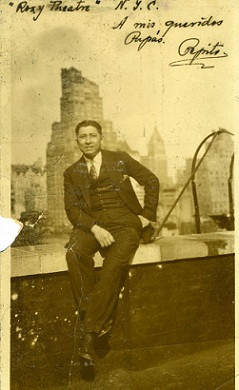 Genghis Khan was restored and was also screened along with Ishmael Bernal’s “Himala” in the recently concluded 69th Venice film fest.
Genghis Khan was restored and was also screened along with Ishmael Bernal’s “Himala” in the recently concluded 69th Venice film fest.
But before Genghis Khan was seen in the 1952 Venice film fest, a Filipino bass baritone by the name of Jose Mossesgeld Santiago was making waves at the famous Venice landmark – the Teatro La Fenice where he sang major roles in such operas as Norma and La Gioconda, among others.
Noted Italian composer Giuseppe Verdi has a long association with Teatro La Fenice starting with a performance of Ernani in 1844. The next thirteen years thereafter saw the world premiere at La Fenice of such operas as Attila, Rigoletto, La Traviata and Simon Boccanegra.
Born in San Miguel de Mayumo in Bulacan, Jose Mossesgeld Santiago also became the first Filipino to sing at La Scala di Milan in the role of Sparafucile in the opera, Rigoletto, in the 1931-32 season.
In an information supplied by his grandson Simon Mossesgeld, we learned that Santiago was the first music director of the Ateneo Glee Club when the American Jesuits took over the school in 1921. Before his La Scala and Teatro La Fenice debuts, he sang for two years in Roxy Theater in New York after winning the Enrico Caruso voice scholarship. He is also the first Filipino singer to record for Columbia Artists in 1925.
After his European conquest, Santiago returned to the Philippines where he taught music and help mount operas at the Manila Metropolitan Theater. He passed away March 5, 1959 – some 24 years after his golden voice was heard in the Teatro La Fenice productions of La Gioconda and Norma in Venice.
